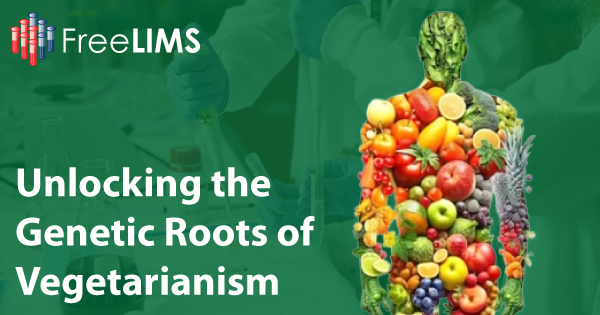
Researchers identified genes in vegetarians that may explain why they choose plant-based diets after screening 330,00 genomes.
Vegetarianism has been practiced for millennia in different societies and cultures, but today only a small minority of people forgo eating meat.
People turn to a meatless diet for ethical reasons, such as animal well-being or reducing carbon prints. But could it be hereditary?
A team of researchers believes they have discovered evidence that opting for a plant-based diet could actually be influenced by our genetics.
Over 330,000 genomes screened
A team led by Nabeel Yaseen, a pathology professor at Northwestern University in the US screened the UK Biobank, a large-scale biomedical database. They compared genomes from 5,324 strict vegetarians to 329,455 non-vegetarians aged between 40 and 69.
They tried “to identify loci associated with strict vegetarianism”. In genetics, a loci designates the position of a gene on the chromosome.
“We identified three genes that are significantly associated with vegetarianism as well as 31 other genes that are possibly associated with vegetarianism,” Yaseen told Euronews Next.
The team’s findings were published in PLoS ONE.
“The mechanisms by which genetic variants influence dietary choices involve an interplay between metabolism, physiologic effects, and taste perception. The levels of liking and consumption of dietary items are influenced by taste perception,” the study noted.
The team’s discovery opens new avenues of inquiry requiring further study to fully understand the relationship between genetics and vegetarianism.
Role of genes
“Based on the functions of some of these genes, we speculate that lipid (fat) metabolism and its effects on brain function may play a role,” Yaseen said.
“At this time, we can only speculate: one possibility is that meat may contain unique fatty components that vegetarians are able to adequately synthesise endogenously, whereas others need to obtain them from a meat-containing diet,” he added.
This research is part of genome-wide association studies (GWAS) that emerged in the mid-2000s. It’s a scientific approach used to identify genetic variations associated with traits – or sometimes diseases.
With GWAS, researchers are looking at the association between genomic variants and a specific trait, though they can only identify correlation, not causation.
“We hope that our study will stimulate further research into the genetics and physiology of vegetarianism,” Yaseen said, hoping that future research will give more information regarding the role played by the genes and variants identified.
“That knowledge may allow us to provide better personalised dietary recommendations and perhaps enable the production of better meat substitutes,” he added.

